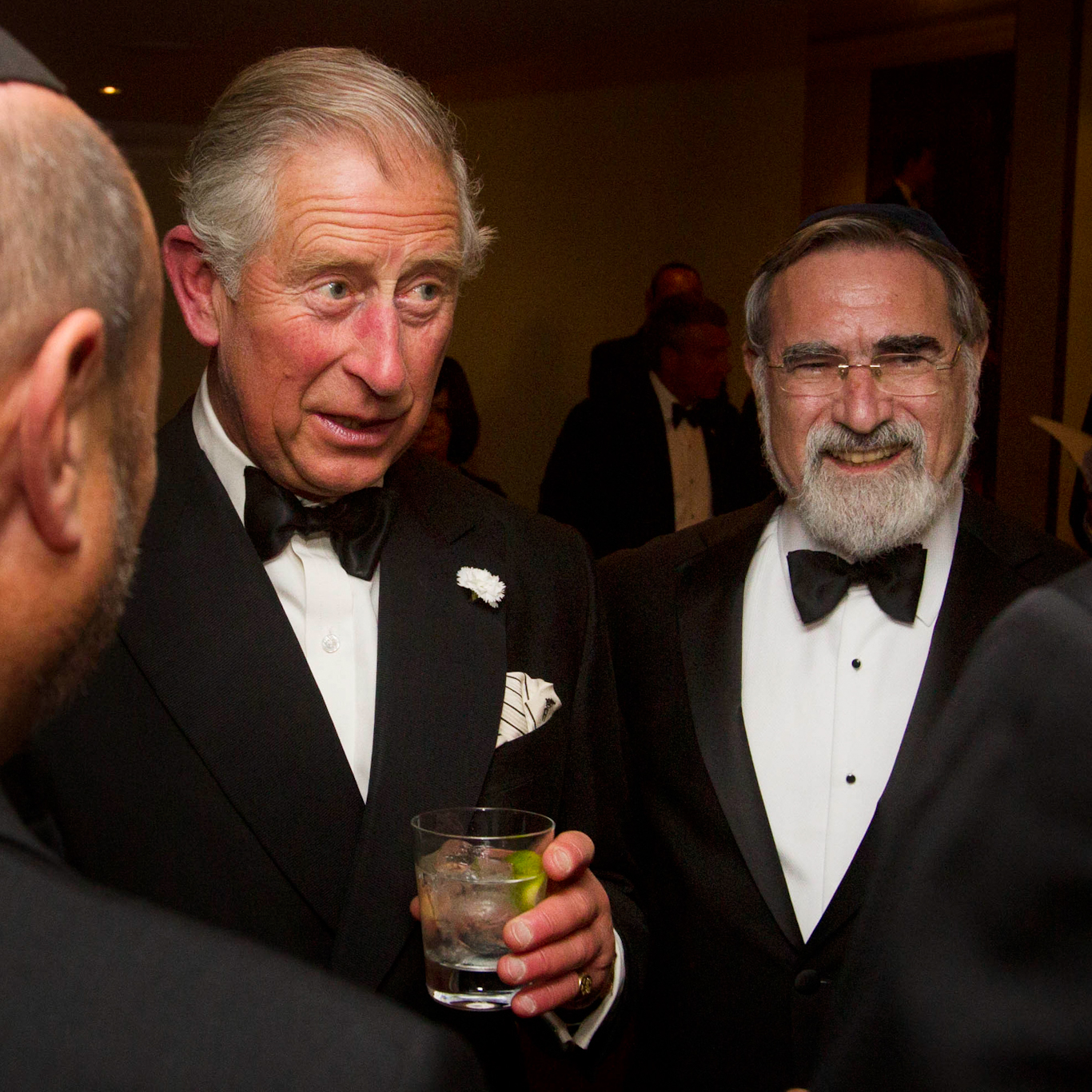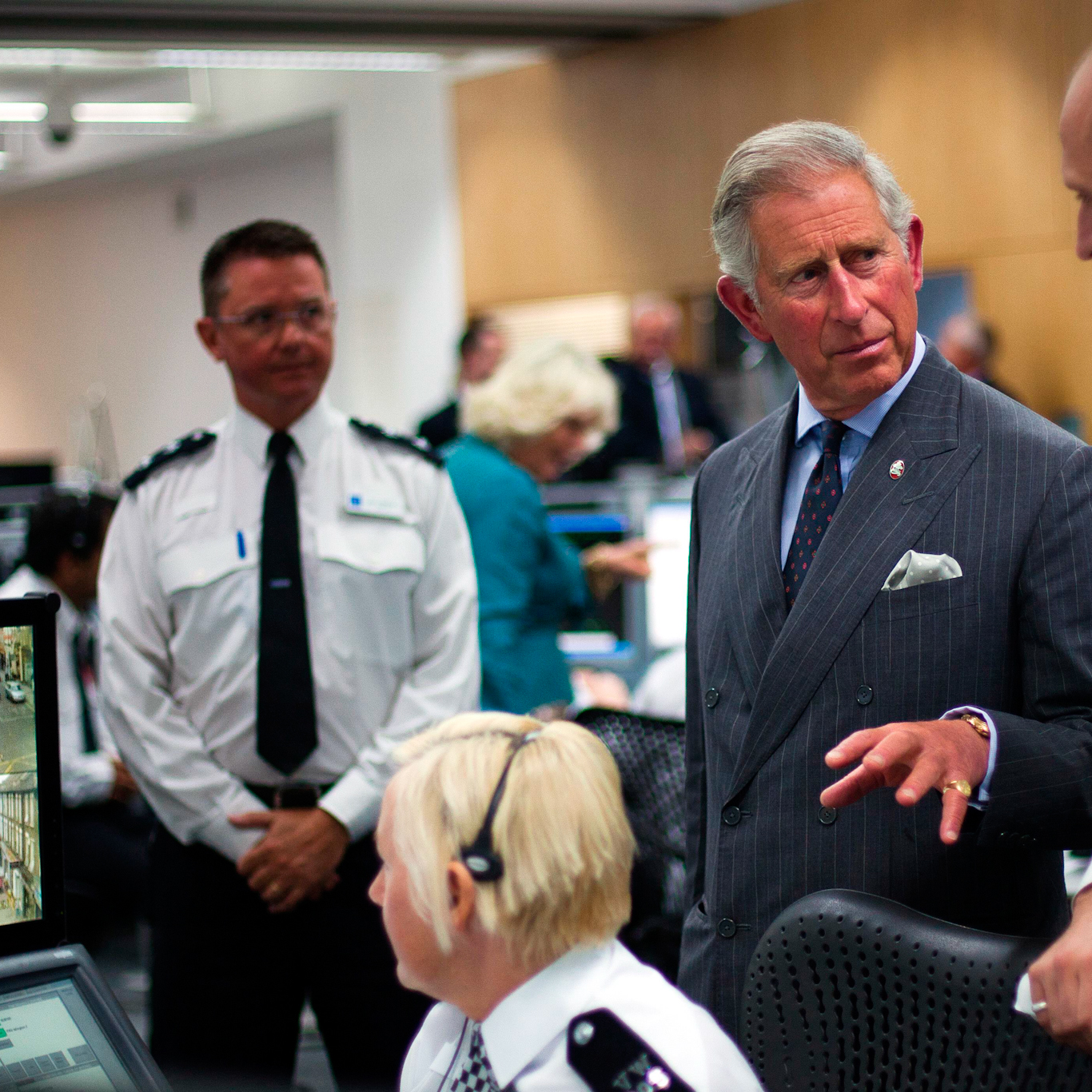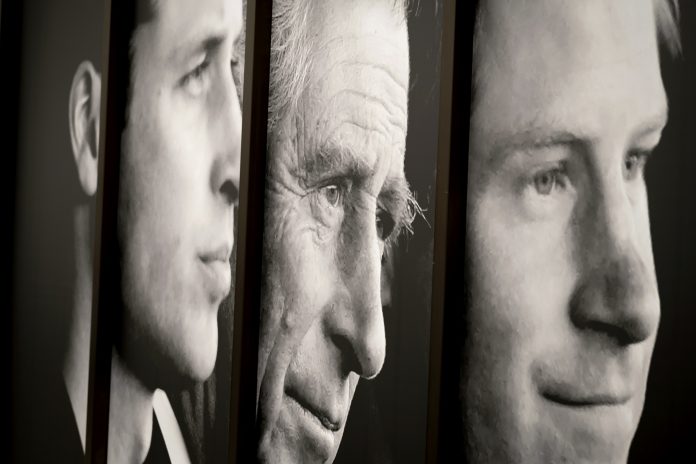One of the most extraordinary – yet unremarked upon – developments since Israel’s genocidal assault on Gaza began has been the British monarchy’s brazen jettisoning of any pretense of “political neutrality.” Queen Elizabeth II, publicly at least, rigidly refrained from commenting on current affairs or giving the vaguest appearance of taking a particular “side” on any issue throughout her 70-year reign. However, her recently coronated heir has comprehensively consigned that convention to ashes.
Within hours of Operation Al-Aqsa Flood commencing, King Charles viciously condemned Hamas, saying that he was “profoundly distressed” and “appalled” by the “horrors inflicted” by the group and its “barbaric acts of terrorism.” Hamas is not recognized as a terrorist entity by the majority of countries, and even the BBC – which has relentlessly manufactured consent for genocide in Gaza since the violence erupted – rejects the use of that loaded, politicized designation.
During his lengthy spell as Prince of Wales, Charles was an inveterate meddler in the British government’s domestic and foreign policy in ways that were often far from discrete. Yet, he has remained largely silent since quietly becoming King in September 2022, then being formally crowned in May this year. His public statements are, therefore, highly significant and, what’s more, seemingly represent just the tip of a much larger intervention.
The Daily Telegraph has reported that behind the scenes, King Charles is “pushing for peace in the Middle East” using “soft power.” If so, these efforts have so far failed miserably. Israel’s murderous rampage in Gaza has only ratcheted in brutality since it commenced, the death toll rising by hundreds daily as civilian infrastructure is flattened by an inexorable aerial onslaught. Meanwhile, the threat of a full-blown ground invasion ever looms.
As such, it is only reasonable to ask whether Charles’ vision of “peace” in Gaza is, in fact, Palestine completely purged of Palestinians and if he has in any way encouraged the occupation government of Benjamin Netanyahu in its new attempt to recreate the Nakba. As we shall see, the King fully supports Zionism and the ideology’s genocidal objectives, and Britain’s military, intelligence agencies, and government dependably act upon his orders and according to his wishes.
‘A Problem for Palestinians’
Queen Elizabeth II never visited Israel. It was widely speculated that she was advised against doing so by the Foreign Office for fear of Arab boycotts of British goods and oil embargoes, which had crippled the country’s economy in late 1973. Yet, it has been suggested in some quarters that she privately harbored sympathy for the Palestinians and abhorred Zionist violence toward Arabs.
Come January 2020, with her health rapidly declining, Charles took on her official foreign visit responsibilities as de facto British head of state, and among his first ports of call was Israel. It wasn’t the first time he’d traveled to the country. Previously, he privately attended the funerals of former Israeli leaders Yitzhak Rabin and Shimon Peres. His presence on both occasions was a closely guarded secret.
While on the trip, Charles declared it was his “dearest wish that the future will bring freedom, justice and equality to all Palestinians.” Yet, the details of his prior visits suggest this statement was not sincere. In 2016, while attending the funeral of Peres, he also visited the graves of his grandmother, Princess Alice, and her aunt, Grand Duchess Elisabeth, in a small Christian cemetery on Jerusalem’s Mount of Olives, near the world’s largest Jewish cemetery.
Both were Christian Zionists, and their desire to be buried on the Mount reflects its significance to the movement. Despite lying in a part of the city claimed by Arabs as East Jerusalem, which is recognized by several countries as Palestine’s capital, it is considered to be among the holiest Jewish sites in the world and cited by Zionists as key proof that the territory comprising Israel as described in the Bible is the exclusive homeland of Jews.
The Jerusalem Post approvingly dubbed Charles’ Christian Zionist sympathies and familial connection to the Mount “a problem for Palestinians,” arguing the King has a clear conception of “who the city and the country belong to” as a result. Meanwhile, the Times of Israel has hailed him as “a friend” to Jewry “with special and historic ties to Israel.”
One such tie was a long-running and extremely close friendship with Britain’s former chief Rabbi and President of United Jewish Israel Appeal (UJIA), Jonathan Sacks. Upon his death in November 2020, Charles praised him as “a leader whose wisdom, scholarship and humanity were without equal”:
It was with the most profound personal sorrow that I heard of the death of Rabbi Lord Sacks. With his passing, the Jewish community, our nation, and the entire world have lost a leader whose wisdom, scholarship and humanity were without equal.”

UJIA is one of Israel’s three national institutions and operates a number of programs to train Jews the world over to advance Zionist interests, starting in primary schools. Sacks was a fervent advocate of a similar Israeli government effort, known as Birthright, under which anyone anywhere in the world aged 18-26 who can prove Jewish heritage is given an all-expenses paid trip to Israel to rub shoulders with Occupation Forces be deluged with Zionist propaganda, and foster a personal connection with the country.
While highly controversial, Sacks considered Birthright “perhaps, the greatest single innovation in Jewish life in the past quarter century” for “strengthening [attendees’] links to the land, the State and the people of Israel.” His attempts to indoctrinate children in Zionism extended to serving on the board of One Voice, an astroturf anti-BDS lobbying group targeting schools.
With friends like Sacks, King Charles undoubtedly feels very strongly about who Jerusalem belongs to.
‘Obedient Servant’
It is an open question whether the monarch’s affinity for Israel in any way accounts for the British government’s abandonment of its historical sympathy for the Arab world and modern-day accommodation with Zionism. A lie universally maintained by the mainstream media is the British monarchy’s powers in the 21st century are purely ceremonial. While the obsequious terminology “His/Her Majesty’s government” may be liberally used still, long gone are the days, it is alleged, when a King or Queen could overrule parliament’s will.
In reality, a little-known procedure known as “Queen’s Consent” means a King or Queen’s acquiescence to prospective laws must be sought by the British government before they can even be put to parliamentary vote. Moreover, under this convention, monarchs are alerted whenever legislation that could affect the royal prerogative or the British Crown’s private interests is in the offing. This stipulation not only produces a pronounced chilling effect on all laws and regulations elected governments draw up but frequently alters their composition in ways large and small.
For example, in February 2021, it was revealed that in the 1970s, Queen Elizabeth II pressured government ministers to amend transparency legislation to conceal her “embarrassing” wealth from the public. As a result, a clause was inserted granting companies used by “heads of state” exemptions from financial disclosures. The true scale of her riches remains unknown, although it has been estimated to run into hundreds of millions of pounds.
“Queen’s Consent” is not the only mechanism of political control in a British royal’s arsenal. In May 2015, over two dozen private communications between then-Prince Charles and British ministers were published after a decade-long legal struggle. Successive governments squandered hundreds of thousands of pounds to keep these letters private. The contents showed that Charles, in flagrant breach of “political neutrality,” had routinely petitioned elected representatives on subjects ranging from the Iraq War to alternative medicines over many years.
In one message, the then-heir to the British throne openly warned a health minister that “chickens will come home to roost” in their department if redevelopment of a hospital – in which the Prince’s architecture charity had an interest – was not accelerated. However, Charles didn’t typically rely on threats. Government officials were usually willing to obsequiously roll over whenever – and however – he ordered them to.

In response to one covert royal intervention, Prime Minister Tony Blair unctuously stated to Charles, “I always value and look forward to your views.” In another, an education secretary sycophantically signed off: “I have the honor to be Your Royal Highness’ most humble and obedient servant.”
The release of these letters prompted speculation Charles would be far more outspoken and overtly meddlesome than his ostensibly taciturn mother upon taking the throne. Until Hamas struck Israel, these tendencies had not hitherto publicly emerged. However, it is somewhat inconceivable that since his coronation, he has not interfered in British politics in some way or other. We have no way of knowing, though, as in 2010, Britain’s Freedom of Information Act was amended to provide an “absolute exemption” on all requests related to the royal family.
The connivances of British royalty are also protected by law throughout the Commonwealth. In 2020, after a four-year-long legal battle, the Australian government released correspondence exposing how Queen Elizabeth II was instrumental in the ouster of Canberra’s radical left-wing premier, Gough Whitlam, in November 1975. The papers showed that then-Prince Charles was a core conspirator in the coup, coordinating directly with Britain’s governor John Kerr – who dismissed the Prime Minister – before, during and after. Six months later, the King-in-waiting wrote to Kerr:
I wanted you to know that I appreciate what you do and admire enormously the way you have performed in your many and varied duties. Please don’t lose heart. What you did last year was right and the courageous thing to do.”
All The King’s Groomers
In October 2021, historians Richard Aldrich and Rory Cormac published The Secret Royals, a landmark text tracking the House of Windsor’s relationship with British intelligence over centuries. Completing the work was no easy feat. In its preface, the authors remark, “Writing about spies is challenging; writing about royals is more difficult; and writing about spies and royals has sometimes seemed impossible.”
Nonetheless, the pair pieced together a tantalizing history of the British monarchy’s enduring, intimate adjacency to intelligence. They recorded how Queen Elizabeth I’s reign inaugurated a golden age of spying in Europe as the British Empire came into being while tracing the birth of London’s modern-day espionage agencies to efforts to prevent Queen Victoria’s assassination. Much of the book’s content was hitherto secret.
One can only speculate what future scholars might unearth on King Charles’ bond with MI5, MI6, et al. Nonetheless, what is in the public domain is highly disquieting. As Prince of Wales, the monarch was a formal patron to British intelligence, his personal Charitable Fund routinely funneling vast sums to notorious signals spying agency GCHQ.
In January, King Charles visited GCHQ’s secret Manchester headquarters. There, he “met with teams from across the organization,” including its director and young graduates of the agency’s apprenticeship scheme. In addition to receiving “several” in-person briefings from high-ranking spies, he intruded upon a local primary school class present at the site that day, taking part in a “special lesson.” Unsettling publicity photos depict him beaming broadly while hovering closely over the shoulders of very young children.
During his visit, His Majesty took part in a special puzzling session with pupils from @CoopNwIslington and met with graduates from our apprentice scheme. @RoyalFamily
[2/2] pic.twitter.com/1u3A3a1uMa
— GCHQ (@GCHQ) January 20, 2023
For years, GCHQ – Britain’s largest and best-funded spying agency – has run dedicated programs to infiltrate schools, propagandize and groom British youth to become future patriotic cyber warriors, and identify and monitor potential troublemakers in classrooms. The January visit was not the first time King Charles featured centrally in these activities. He was guest of honor at GCHQ’s 100th birthday in 2019, along with many primary school children. A contemporary agency newsletter boastfully reported:
The Prince showed great interest in the project’s goals and spent time chatting with the students that the schools had selected to represent them, in addition to the teachers. After meeting the teachers and students, the Prince went on a tour of some of the more secretive work of NCSC [National Cyber Security Centre] and GCHQ.”
Charles’ very public association with GCHQ’s child grooming efforts tends to suggest this sinister work is conducted at His Majesty’s request, or at least with the King’s explicit blessing. To effectively guide and influence British government policy and action, by definition, requires a perpetual unblinking eye trained on both public and behind-closed-doors developments the world over. The monarch, by definition, has every interest in ensuring future generations of spies are up to the task.
A palpable example of the amazing foresight of British spooks was provided on October 8, 2023, when veteran reporter Robert Peston published a remarkable post on X (formerly Twitter). He had been told by “government and intelligence sources” that Hamas’ strike on Israel would likely evolve into full-blown war in West Asia, “as destabilizing to global security as Putin’s attack on Ukraine.”
Peston’s shadowy sources further warned U.S. President Joe Biden “would neither want [nor] be able to veto” a major retaliation from Netanyahu not merely against Palestinians but also Iran, which they accused of sponsoring Operation Al-Aqsa Flood. The journalist duly prophesized:
There is a risk of this crisis spreading well beyond the Middle East because of Putin’s links with Iran, the West’s deep concerns about Iran’s nuclear ambitions and China’s power struggle with America. We are in the early stages of a conflict with ramifications for much of the world.”
For Peston, a thoroughly well-connected establishment hack of some standing to relay these words was highly significant. The timing of this intervention, just one day after Hamas spectacularly swooped upon Israel’s Occupation Forces, likewise. British spies were from the word go somehow certain Operation Al-Aqsa Flood would inevitably lead to something much grander and graver, and felt it incumbent to begin immediately laying public foundations for that imminently impending eventuality.
Five days later, the Royal Navy and British elite special forces units were dispatched to the Mediterranean to “support” Tel Aviv and closely surveil local developments.
While Israel’s long-threatened Gaza ground offensive remains abortive as of October 29, the devastatingly lethal air assault on Palestinians waged ever since, along with multiple airstrikes on Lebanon and Syria, mean that the stage is decisively set for a “conflict with ramifications for much of the world.” Just as Peston’s sources cautioned.
At many of the countless demonstrations the world over in support of the Palestinians, demonstrators have brandished aloft signs imploring the U.S. President to impose a ceasefire in Gaza, if not order Netanyahu to seek enduring peace. Such requests may be misdirected. The true power to halt Israel’s latest push to fulfill Zionism’s genocidal founding mission may not lie in Washington DC but in London. Specifically, Buckingham Palace.
Feature photo | Illustration by MintPress News
Kit Klarenberg is an investigative journalist and MintPress News contributor exploring the role of intelligence services in shaping politics and perceptions. His work has previously appeared in The Cradle, Declassified UK, and Grayzone. Follow him on Twitter @KitKlarenberg.
The post The Mask Has Fallen: King Charles Supports Israel appeared first on MintPress News.
